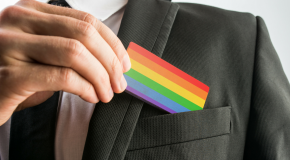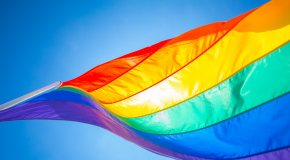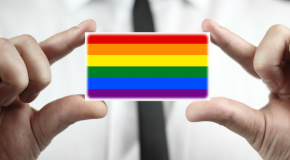骄傲与偏见:谱写新篇章
对许多人来说,美国最高法院2015年做出的全国范围内同性婚姻合法化的决定,是女同性恋、男同性恋、双性恋和跨性别人士(LGBT)走向权利平等的最新里程碑,是数十年斗争的巅峰时刻。近年来政治动荡、贸易战不断,再加上大流行病,全球的焦点已经偏离LGBT群体的平等权利。即便如此,LGBT群体的平权活动还是取得了许多重大胜利,尤其在亚洲。其中最显著的便是台湾同性婚姻合法化。此外,包括中国和印度在内的法院重大裁决,虽然是渐进过程,也推动着LGBT群体获得平等权利的进程。
考虑到这一背景,我 们最近进行的主题为””骄傲与偏见”的调查(本调查和研究报告为年度项目,本年为第五年)探讨了LGBT群体的权利,主要集中于亚洲。尽管现在西方仍存在歧视,但相较于几年前,更接近于完全平等。另一方面,亚洲仍要经历漫长过程,才能成为这场持续的LGBT群体权利的全球斗争的下一个战场,真正有所进展。随着亚洲城市年轻人的态度迅速改变,亚洲大陆有望接过接力棒。
Related content

Pride and Prejudice: The next chapter of progress
For many, the United States Supreme Court decision in 2015 to legalise same-sex marriage nationwide was a recent high-water mark for lesbian, gay, bisexual and transgender (LGBT) rights, an inspiring moment that served as the culmination of decades of struggle. Although the past few years of turbulent political shifts, trade wars and a major pandemic have seen the global spotlight shift away from LGBT rights, they have not been without significant victories, especially in Asia. Taiwan’s recent adoption of same-sex marriage is the most prominent, but other, more incremental advancements—including significant court rulings in China and India—have also pushed the envelope forward.
With this context in mind, our most recent study under the Pride and Prejudice banner—the fifth in an annual series of surveys and research reports exploring LGBT rights—focuses on Asia. Although the West still contains pockets of discrimination, it is far closer to full equality than it was even a few years ago. Asia, on the other hand, still has a long journey ahead, making the region the true next chapter of progress in this ongoing global fight. With attitudes among young, urban-dwelling Asians changing rapidly, the continent will hopefully pick up the baton.
In keeping with the Pride and Prejudice approach of years past, our research, sponsored by Manulife, Barclays and Nomura, focuses roughly equally on the business community and society at large. In particular, this year it compares corporate attitudes to those of rank-and-file staff with regard to LGBT rights; just as the wider social compass may lag behind—or diverge entirely—from the attitudes and opinions of individuals, so too do companies often default to a conservative “groupthink” mentality that obscures potentially rapid change in attitudes among individual workers. These attitudes are captured via a survey, fielded in August and September 2020, of 359 full-time employees at companies across seven economies: China, Hong Kong, India, Indonesia, Japan, Singapore and Taiwan. Our sample is 44% director-level and above, including 16% C-suite executives. It is 77% male and 8% members of the LGBT community. See the report appendix for full survey results, including demographic data.
Download the report in English | 简体中文 | 繁體中文(香港) | 繁體中文(台灣) | 日本語

骄傲与偏见:变革的动力
2016年,经济学人集团发起了“骄傲与偏 见:商业和经济中男同性恋、女同性恋、 双性恋和跨性别者(LGBT)的多元化和 包容性问题”计划的第一阶段。作为计划的一部分,经济学人智库(The Economist Intelligence Unit/The EIU)开展了一项研究,基于广泛的全球调查和深入的案头研究探讨LGBT人群在工作场所的地位。现在, 在计划开展的第二年,这项研究涵盖了最能 为工作场所的LGBT人群推动积极变革的群 体:公司领导、年轻人和女性。
为了找出这些变革的动力,我们首先要了解企业中存在的偏见程度。尽管有一些正面的发现,例如支持一般意义上的LGBT权利的高管人员所占比例很高,但对LGBT的敌意仍然非常普遍;每十位高管中就有一位意识到办公场所存在对LGBT人群的某种歧视。LGBT 群体通常会在工作中隐藏自己的身份,这种低调致使人们认为这并不是一个需要系统化解决的问题,专门制定计划来不断推进问题解决的动力少之又少。
打破这种恶性循环最有效的方法之一就 是让公司领导人宣布成为LGBT人群的盟 友,LGBT领导人甚至可以公开“出柜”。在去年的调查中,有63%的受访者认为管理层 (高层和高级管理人员)最能影响LGBT文化 在工作场所的进步。然而很少有高管认为他 们公司的高层人员特别热衷于为LGBT权利发 声。帮助领导者参与并培养更具包容性的领 导文化往往需要大量的时间和精力。
但是,年轻一代的员工开始发声,准备好在 整个企业环境中(包括在高层)掀起全面变革。外部研究表明,在世界的大部分地区, 千禧一代比年长者更有可能支持LGBT权利。 调查的受访者感觉到,这种态度上的转变如同接力棒在代与代之间的传递。然而在这方 面,年轻员工可能会感到与领导者脱节:在 我们的调查中,许多年轻职员说不出具体是谁在引导工作场所中对LGBT群体包容性的态度,而更多的高层人员至少可以说出一种类型的员工。
从几代人和多个企业层级来看,女性对LGBT 工作场所包容性的支持高于男性。这种现象 源自各种因素,包括女性与LGBT人群共同的 受歧视历史以及将男同性恋者与女性气质联 系在一起的根深蒂固的刻板印象。这两个群 体类似的斗争可以警醒彼此,一个群体的进步往往会推动整体的进步。

骄傲与偏见:关于工作场所中LGBT包容性的态度和意见
为了揭示当前职场中对LGBT人群的看 法和态度,经济学人智库(The Economist Intelligence Unit/EIU)于2015年10月到11月 期间针对全球1,021名意见领袖在网上进行 了“骄傲与偏见”基准调查。从他们的观点 中,我们深刻了解到了在为LGBT群体权利谋求更多平等权利时需解决的问题。
大体上,那些调查对象看上去并没有表现出 对LGBT人群的歧视态度。在很多时候,基 于性取向和性别认同(SOGI)多样性的进步根本还没有成为热门话题。这要是由于LGBT 一直被视为“隐性”的少数群体。过去有研 究表明,很多LGBT人士在某种程度上都会在工作中隐瞒自己的性取向,在美国这一比例高达53%。根深蒂固的规范阻止员工谈论这个话题,迫使他们不得不隐瞒身份;而这方面的空白反过来又塑造了规范,迫使更多的人隐藏自己的秘密。在北美和西欧以外的宽容度不太明显的社会中,未出柜员工的比 例很可能要比这高得多。
但是与在许多其他场所中一样,在办公室 里,熟悉程度会提升接纳度。公司中存在 LGBT益倡导者,或者知道自己的同事、老 板和下属中有LGBT人士,可以改变人们的观念。然而,一个主要的挑战是,如何将包 容性与公司的财务业绩联系起来。很少有受 访者注意到这之间的联系。
不过值得庆幸的是,企业在社会中的作用更 为明确。许多受访者希望看到他们的公司在促进LGBT权利时采取直言不讳的态度,并在一定程度上由高层人员领导,虽然这些意见因年龄和性别而异。
Pride and Prejudice: The next chapter of progress
For many, the United States Supreme Court decision in 2015 to legalise same-sex marriage nationwide was a recent high-water mark for lesbian, gay, bisexual and transgender (LGBT) rights, an inspiring moment that served as the culmination of decades of struggle. Although the past few years of turbulent political shifts, trade wars and a major pandemic have seen the global spotlight shift away from LGBT rights, they have not been without significant victories, especially in Asia.
Related content

Pride and Prejudice
Pride and Prejudice is a global, 24-hour event spanning three cities around the world. It will catalyse fresh debate on the economic and human costs of discrimination against the LGBT community. The event will challenge policymakers and industry leaders to rethink the future of the LGBT movement and its impact on business.
Download report | More about Pride and Prejudice
阅读报告:简体中文 | 繁體中文
Pride and prejudice: The future of advocacy - highlight video
Watch Michael Gold, wirter of Pride and prejudice: The future of advocacy sharing insights about companies' role in LGBT advocacy at The Economist's annual Pride and Prejudice event.

Pride and Prejudice: Changemakers
Amid the rise in right-wing populist movements across the Western world, one perennial whipping boy has been relatively absent: the LGBT community. While liberals fret over trade wars, warn of environmental disaster and lament the degradation of human rights in multiple contexts, the outlook for LGBT rights has not darkened as significantly as many feared it would. Setbacks do and will still occur; the transgender community remains particularly vulnerable. Much of the world has yet to reach the West’s level of acceptance. But in many places, being openly LGBT is still easier than it once was.
In The Economist Intelligence Unit’s recent report, Pride and Prejudice: Agents of change, to be launched on March 23, 2017, at The Economist's Pride and Prejudice event, we explore the advancement in LGBT diversity and inclusion via three key groups: influential advocates in leadership positions, young people and women. Their central role in the debate applies as much to the workplace as it does to society overall. By focusing on the specific groups best positioned to effect positive change for LGBT people, resources can be more efficiently deployed and the discussion sharpened to reach the eyes and ears of these cohorts.
Why these three? The EIU’s previous work on this topic hinted at the role these employees play: for example, 63% of respondents in last year’s survey cited management (C-suite and senior managers) as those who can most influence LGBT workplace advancement. Women and young people were more likely to agree than their male and older counterparts that the business world has a fundamental imperative to drive change around LGBT diversity and inclusion. These findings served as the framework for this year’s survey, which delved deeper into the attitudes and opinions of these groups and explored the underlying reasons for them.
Those at the top of the ladder occupy perhaps the most complex position in the discussion. When asked which cohort guides company thinking around LGBT diversity and inclusion in the workplace, our survey respondents ranked C-suite/leadership a close second, after young people. Far fewer respondents—only about one in six—believe they are most eager to support said diversity. Yet among C-suite or board members themselves, one in three believes that broader company leadership is more eager than others to support LGBT diversity and inclusion in the workplace. This suggests there’s a disconcerting disconnect between the top and bottom of the corporate pyramid on this issue.
This matters because young people and women—two groups which, according to our survey at least, are more likely to occupy the lower rungs—want to see their values reflected in the workplace and their voices heard by those in power. Increasingly, those values incorporate support for all forms of diversity, including that surrounding sexual orientation and gender identity. Young people, influenced by global pop culture and connected to each other via social media, are more receptive to difference than their elders; women, themselves an oppressed minority, share a natural affinity with LGBT people. Their struggle can inform the march of progress for others facing discrimination, and can open doors of tolerance in the workplace and beyond.
LGBT people may still be waiting for the tide of economic and cultural nationalism sweeping the Western world to engulf them too. On a global scale, much still needs to be done to match even the West’s fragile gains. For those working to effect change, both in the corporate world and society as a whole, the road ahead is challenging, but it is hardly insurmountable.
Pride and Prejudice is The Economist's flagship conference on LGBT rights. Now in its second year, Pride and Prejudice began in 2016 and will continue in 2017 as a global LGBT conference and initiative that will catalyse fresh debate on the economic and human costs of discrimination against the LGBT community.
Visit the Pride and Prejudice website for more information and join the discussion at #EconPride.
The views and opinions expressed in this article are those of the authors and do not necessarily reflect the views of The Economist Intelligence Unit Limited (EIU) or any other member of The Economist Group. The Economist Group (including the EIU) cannot accept any responsibility or liability for reliance by any person on this article or any of the information, opinions or conclusions set out in the article.
Pride and Prejudice: Assessing progress in Asia-Pacific presentation
Acceptance of LGBT people has increased rapidly in recent years, including in the workplace as more companies take steps to provide a welcoming environment for LGBT staff. This progress is incomplete, however, particularly in Asia, where the climate for LGBT people remains frostier than in much of the Western world. The Economist Intelligence Unit presented the fourth year of Pride and Prejudice executive survey about evolving attitudes towards LGBT people in the workplace and broader society, with a particular focus on Asia.
Related content

Pride and prejudice:Assessing progress in Asia-Pacific
The Landscape surrounding LGBT rights in Asia-Pacific is changing fast. This report, the fourth in an annual series of Economist Intelligence Unit studies addressing the business and economic case for global LGBT diversity and inclusion (D&I), focuses on the situation in Asia-Pacific and what progress has been made compared to the first Pride and Prejudice survey fielded in 2015. Based on a survey of nearly 2,000 executives and the general public on the subject of D&I in Asia-Pacific, both in the workplace and broader society, it finds that there’s clear progress in some respects and reasons for concern in others:
A virtuous circle is emerging, in which visibility for LGBT workers is rising along with the perception of bottom-line benefits to diversity and inclusion (D&I). Companies in Asia-Pacific may not be satisfying the growing appetite for corporate D&I. Business momentum is increasing hand-in-hand with greater societal openness toward SOGI in Asia-Pacific, although progress is hardly assured.

Pride and Prejudice: Agents of Change
The report, based on a global survey of over 1,000 executives, posits a framework toward achieving positive change for LGBT employees via three key workplace groups: leadership, young people and women.
Read the report | More about Pride and Prejudice | Watch video 阅读报告:简体中文 | 繁體中文
Pride and prejudice: The future of advocacy
This report, the third in an annual series of Economist Intelligence Unit studies addressing the business and economic case for global LGBT diversity and inclusion (D&I), assesses the future prospects for corporate advocacy in the LGBT space, given the perils that face proponents of the liberal, open-minded worldview that underpins LGBT equality. Based on a survey of over 1,000 business leaders worldwide, it finds that although some companies still prioritise LGBT advocacy, the recent rapid social progress in LGBT acceptance that is both cause and effect of this advocacy should not be taken for granted. The key findings are:
Nearly half of respondents believe companies will become more prominent as agents of progress for LGBT rights in future; however, only a third say their own companies will devote more resources to LGBT advocacy, compared with today Although companies with established public positions on LGBT rights are not likely to reverse course, companies that remain “in the shadows” on this issue are likely to stay there Future expectations for various types of advocacy activities are concentrated in North America and Europe, while other regions, where LGBT rights are less entrenched, lag Companies that engage in pro-LGBT advocacy perform better on various measures of business competitiveness compared with their peers, based on self-reported factors Though LGBT issues continue to play a role in political outcomes around the world, few believe the public will demand more progress on this issue versus other rights debates like gender and race and ethnicityRead the report | Watch highlight video | More about Pride and Prejudice
Pride and prejudice:Assessing progress in Asia-Pacific
The Landscape surrounding LGBT rights in Asia-Pacific is changing fast. This report, the fourth in an annual series of Economist Intelligence Unit studies addressing the business and economic case for global LGBT diversity and inclusion (D&I), focuses on the situation in Asia-Pacific and what progress has been made compared to the first Pride and Prejudice survey fielded in 2015.
Related content

Pride on the continent
For years, lesbian, gay, bisexual and transgender (LGBT) people in Asia have watched as their counterparts in the US, Europe and Latin America have toppled one barrier to equality after another. Only in the past decade or so has a serious reckoning with Asia’s legal and social environment for LGBT rights taken place—remarkably late for a continent of such rapid development. Yet positive change is here, and more is coming.
The fourth year of The Economist Intelligence Unit’s Pride and Prejudice research illustrates that the business community in Asia is growing more tolerant, more open and more accepting of LGBT workers. Based on a survey of executives and the general public in both Asia and overseas, the data show that this shift is occurring in broader society alongside the corporate world. Proving this point, Taiwan’s ground-breaking legalisation of same-sex marriage in May 2019—a first for an Asian jurisdiction—was announced shortly after the survey was completed.
Significantly, the survey shows that various metrics of LGBT diversity and inclusion (D&I) in companies have improved since 2015, the first year of the Pride and Prejudice initiative. The share of Asia-Pacific executives who believe there are prominent LGBT advocates in their company increased by six percentage points. Those who believe there is a return on investment to LGBT-progress-raising measures grew by ten percentage points. And those who would like their firms to increase funding for LGBT D&I shot up by 11 percentage points.
From a broader perspective, survey respondents believe that Asian society is becoming a more welcoming place for LGBT people. Almost three-quarters (74%) say the climate is more open than it was three years ago, in line with findings from North America, Europe and Latin America. Nearly half of respondents also see a future in which same-sex marriage—largely considered the highest attainable goal for LGBT social progress—becomes law of the land across Asia.
Yet significant hurdles remain. The research highlights the role of religious groups as vocal deterrents to full equality—the top reason cited by those who believe the climate for LGBT people in Asia-Pacific has become less open over the past three years was anti-LGBT advocacy by religious institutions. This adds to expectations for companies to be more proactive about protecting LGBT staff in hostile or unfriendly places; the share that agreed with this sentiment in Asia-Pacific has grown by eight percentage points since 2015. Yet the share of respondents who say that increases in LGBT diversity in their firms have been limited or non-existent has risen by eight percentage points in that same three years.
The data demonstrate that even as it seems that progress is advancing apace, much more is needed to ensure full equality. Businesses are only one part of the diverse mosaic of cultures, traditions, histories and geographies in Asia, a place where LGBT people can be vilified in one corner and celebrated in another. Companies have an important role to play, both as internal community-builders for their own LGBT staff, as well as external advocates for greater change on an already fast-changing continent.
The Economist is a proud champion of liberal values. We argued in favour of same-sex marriage in 1996 and have long been vociferous champions of the LGBT agenda. In 2016 we created Pride and Prejudice, our first 24-hour worldwide event focusing on the significance of LGBT inclusion in all aspects of business and politics. Chaired by senior editors from The Economist, our 2019 gathering will again debate how governments, companies and individuals can become advocates, and help improve the legal rights of LGBT people worldwide.
Visit the Pride and Prejudice website to stay tuned for the report launch and join the discussion at #EconPride.
The views and opinions expressed in this article are those of the authors and do not necessarily reflect the views of The Economist Intelligence Unit Limited (EIU) or any other member of The Economist Group. The Economist Group (including the EIU) cannot accept any responsibility or liability for reliance by any person on this article or any of the information, opinions or conclusions set out in the article.

Pride and prejudice: The future of advocacy
This report, the third in an annual series of Economist Intelligence Unit studies addressing the business and economic case for global LGBT diversity and inclusion (D&I), assesses the future prospects for corporate advocacy in the LGBT space, given the perils that face proponents of the liberal, open-minded worldview that underpins LGBT equality. Based on a survey of over 1,000 business leaders worldwide, it finds that although some companies still prioritise LGBT advocacy, the recent rapid social progress in LGBT acceptance that is both cause and effect of this advocacy should not be taken for granted. The key findings are:
Nearly half of respondents believe companies will become more prominent as agents of progress for LGBT rights in future; however, only a third say their own companies will devote more resources to LGBT advocacy, compared with today Although companies with established public positions on LGBT rights are not likely to reverse course, companies that remain “in the shadows” on this issue are likely to stay there Future expectations for various types of advocacy activities are concentrated in North America and Europe, while other regions, where LGBT rights are less entrenched, lag Companies that engage in pro-LGBT advocacy perform better on various measures of business competitiveness compared with their peers, based on self-reported factors Though LGBT issues continue to play a role in political outcomes around the world, few believe the public will demand more progress on this issue versus other rights debates like gender and race and ethnicityRead the report | Watch highlight video | More about Pride and Prejudice

Pride and Prejudice: Agents of Change
The report, based on a global survey of over 1,000 executives, posits a framework toward achieving positive change for LGBT employees via three key workplace groups: leadership, young people and women.
Read the report | More about Pride and Prejudice | Watch video 阅读报告:简体中文 | 繁體中文Pride on the continent
Related content

Steering through collaboration: CFOs driving new priorities for the future
It is well established that the modern CFO has a more strategic role to play in a business, but a clear action plan to achieve this is lacking. A key element of this is helping the business to deal with change. Some changes are planned: launching a new product or service, setting up operations in a new region or acquiring a competitor. Others may be unexpected: a major disruption to supply-chain operations, the emergence of new regulation and legal reporting requirements or the unpredictable impacts of global economic uncertainty.
Either way, when asked about the biggest challenges they face in executing their day-to-day activities, change is a recurring theme, according to a new survey of 800 CFOs and senior finance executives, conducted by The Economist Intelligence Unit. Managing unexpected changes to financial forecasts and adapting finance processes to rapidly evolving business models are top of mind.
Managing unexpected changes to financial forecasts and adapting finance processes to rapidly evolving business models are top challenges finance executives face in executing their day to-day activities.
Finance executives are also concerned with identifying how to align strategic, financial and operational plans towards common objectives and meaningfully analysing data across business units and regions. “All functions are working to meet these challenges and, as a finance head, we have to have visibility across all functions, how they are progressing [towards meeting goals] and ensuring that their direction is in line with overall strategic goals,” says Lalit Malik, CFO of Dabur, an Indian consumer goods manufacturer. It is incumbent upon CFOs therefore to be prepared not only to help their own function navigate uncharted territory, but the rest of the business too. That means breaking down the silos that commonly exist in organisations, in order to collaborate closely across functions, sharing information and data in the pursuit of common objectives.
All functions are working to meet these challenges and, as a finance head, we have to have visibility across all functions, how they are progressing [towards meeting goals] and ensuring that their direction is in line with overall strategic goals - Lalit Malik, CFO of Dabur, an Indian consumer goods manufacturer.
The clear custodian of collaboration
There are a number of reasons why the role of leading cross-company collaboration around steering should fall to the CFO and their team. First, through the activities of budgeting, the finance function is the custodian of the clear, quantitative expression of management expectations and determines how resources such as cash and people will be allocated in order to achieve them. In our survey, 90% of respondents say that finance should facilitate collaborative enterprise planning to ensure that operational plans are aligned with financial and strategic plans.
Second, through performance management, the finance function is the gatekeeper for critical data that illustrate how well—or otherwise—the company is rising to the challenge of change. That includes data relating to sales, supply chain and delivery, which need to be reported back to the business in ways that help drive improved decisionmaking. Our survey reveals that companies in which finance executives feel empowered to drive strategic decisions across business functions are more likely to report a higher financial performance in fiscal year 2016/17 and 2017/18 and anticipate higher growth rates for 2019/20.
Download Complete Executive Summary PDF

Transforming data into action
As businesses generate and manage vast amounts of data, companies have more opportunities to gather data, incorporate insights into business strategy and continuously expand access to data across the organisation. Doing so effectively—leveraging data for strategic objectives—is often easier said than done, however. This report, Transforming data into action: the business outlook for data governance, explores the business contributions of data governance at organisations globally and across industries, the challenges faced in creating useful data governance policies and the opportunities to improve such programmes. Learn more by downloading our whitepaper below.

Rethinking professional services in an age of disruption
Pride and prejudice: The future of advocacy - highlight video
Watch Michael Gold, wirter of Pride and prejudice: The future of advocacy sharing insights about companies' role in LGBT advocacy at The Economist's annual Pride and Prejudice event.
Related content

Pride and prejudice: The future of advocacy
This report, the third in an annual series of Economist Intelligence Unit studies addressing the business and economic case for global LGBT diversity and inclusion (D&I), assesses the future prospects for corporate advocacy in the LGBT space, given the perils that face proponents of the liberal, open-minded worldview that underpins LGBT equality. Based on a survey of over 1,000 business leaders worldwide, it finds that although some companies still prioritise LGBT advocacy, the recent rapid social progress in LGBT acceptance that is both cause and effect of this advocacy should not be taken for granted. The key findings are:
Nearly half of respondents believe companies will become more prominent as agents of progress for LGBT rights in future; however, only a third say their own companies will devote more resources to LGBT advocacy, compared with today Although companies with established public positions on LGBT rights are not likely to reverse course, companies that remain “in the shadows” on this issue are likely to stay there Future expectations for various types of advocacy activities are concentrated in North America and Europe, while other regions, where LGBT rights are less entrenched, lag Companies that engage in pro-LGBT advocacy perform better on various measures of business competitiveness compared with their peers, based on self-reported factors Though LGBT issues continue to play a role in political outcomes around the world, few believe the public will demand more progress on this issue versus other rights debates like gender and race and ethnicityRead the report | Watch highlight video | More about Pride and Prejudice

Here today, gone tomorrow
When it comes to advocacy, companies have a choice to make. They can subscribe to economist Milton Friedman’s view that “the social responsibility of business is to increase its profits”, and that using corporate resources to advocate for social causes is not appropriate. Alternatively, they can recognise that companies are merely facets of society, comprised of people who must live and thrive in the same human-rights battlegrounds as activists, journalists and politicians.
Many companies have already acknowledged this fact, and have joined in the movement to create a society that will enable them to succeed. Nowhere is this more apparent than in the global struggle to advance the rights of lesbian, gay, bisexual and transgender (LGBT) people. Recent political developments—the election of Donald Trump as US president foremost among them—have cast doubt over the dramatic progress made in LGBT rights. Corporate executives are beginning to wake up to this fact: 57% of executives in this year’s iteration of The Economist Intelligence Unit’s annual Pride and Prejudice survey agree that “if left unchallenged, the current global political climate could undo progress made in LGBT inclusion.” Respondents in North America, where the election of Mr Trump shocked many in the business community, perceive this trend particularly acutely.
Yet amid the conflicts over race, religion, gender, ethnicity and nationality that flood newspaper headlines on a near-daily basis, many fear LGBT rights will be overshadowed. Our executive panel suggests these worries may be justified: only 6% believe LGBT rights are being most negatively impacted by the current global political climate. Only 5% selected LGBT rights as the area in which the public will demand the most change this year.
It is precisely for this reason that LGBT-friendly companies cannot afford to grow complacent in the belief that society will continue to progress in a favourable direction. Among executives that believe companies will become more prominent as agents of progress for LGBT rights in three years’ time, the majority cited “increasingly positive attitudes toward LGBT people in society” as the main reason for this shift. Yet this rose-tinted future is hardly guaranteed—research released in January by GLAAD, a non-governmental organisation, showed public tolerance of LGBT people in the US decreasing for the first time in four years. Meanwhile, the Trump administration has launched fresh assaults on transgender rights, and persecution against LGBT people overall has risen to alarming levels in other places, from Indonesia to Chechnya.
Companies can and should speak out. Advocacy can take various forms, from advertising campaigns depicting LGBT people to donations to local LGBT-rights organisations. Exercising influence via business networks is also a promising tactic. Hong Kong’s LGBT+ Interbank Forum, for example, brings together a multitude of voices in pushing policies with the local government, which has not proven particularly receptive to LGBT causes. Groups like these can also facilitate knowledge transfer between companies with established track records on LGBT rights and their peers that are just starting out on their advocacy journeys.
This is particularly crucial given that companies that do not consider themselves role models for LGBT diversity and inclusion also generally do not expect the environment for advocacy to get more amenable, according to our survey. In other words, companies that are currently “in the shadows” on this issue expect to stay there in future. This places all the more onus on the shoulders of advocacy champions to take the lead in educating the overall corporate ecosystem about the importance of pushing LGBT-friendly practices and policies.
There is much they can teach: the survey suggests companies engaging publicly on LGBT rights may outperform their peers on various business competitiveness factors. This is hardly surprising; LGBT inclusiveness within companies has been shown to associate with increased innovation, productivity and stock performance. There is no reason to believe that external LGBT-friendliness would correlate with corporate strength any less so than the internal variety.
Having the confidence to be an advocate is often the natural by-product of an inclusive company culture; many of the strongest LGBT champions hardly consider their advocacy work to be a choice at all, but rather part of their corporate DNA. Yet there is little denying that this kind of open, diverse mindset that underpins LGBT rights is under assault the world over. No company, even the most forward-thinking, can insulate itself from these pressures. Companies indeed have a choice, and it is incumbent on them to play their part in ensuring that the simple desire of people to be able to love who they wish to love, and to identify with the gender they feel rather than that assigned to them, remains protected the world over.
The Economist is a proud champion of liberal values. We argued in favour of same-sex marriage in 1996 and have long been vociferous champions of the LGBT agenda. In 2016 we created Pride and Prejudice, our first 24-hour worldwide event focusing on the significance of LGBT inclusion in all aspects of business and politics. Chaired by senior editors from The Economist, our 2018 gathering will again debate how governments, companies and individuals can become advocates, and help improve the legal rights of LGBT people worldwide.
Visit the Pride and Prejudice website for more information and join the discussion at #EconPride.
The views and opinions expressed in this article are those of the authors and do not necessarily reflect the views of The Economist Intelligence Unit Limited (EIU) or any other member of The Economist Group. The Economist Group (including the EIU) cannot accept any responsibility or liability for reliance by any person on this article or any of the information, opinions or conclusions set out in the article.

Pride and Prejudice: Agents of Change
The report, based on a global survey of over 1,000 executives, posits a framework toward achieving positive change for LGBT employees via three key workplace groups: leadership, young people and women.
Read the report | More about Pride and Prejudice | Watch video 阅读报告:简体中文 | 繁體中文Pride and prejudice: The future of advocacy
This report, the third in an annual series of Economist Intelligence Unit studies addressing the business and economic case for global LGBT diversity and inclusion (D&I), assesses the future prospects for corporate advocacy in the LGBT space, given the perils that face proponents of the liberal, open-minded worldview that underpins LGBT equality.
Related content

Here today, gone tomorrow
When it comes to advocacy, companies have a choice to make. They can subscribe to economist Milton Friedman’s view that “the social responsibility of business is to increase its profits”, and that using corporate resources to advocate for social causes is not appropriate. Alternatively, they can recognise that companies are merely facets of society, comprised of people who must live and thrive in the same human-rights battlegrounds as activists, journalists and politicians.
Many companies have already acknowledged this fact, and have joined in the movement to create a society that will enable them to succeed. Nowhere is this more apparent than in the global struggle to advance the rights of lesbian, gay, bisexual and transgender (LGBT) people. Recent political developments—the election of Donald Trump as US president foremost among them—have cast doubt over the dramatic progress made in LGBT rights. Corporate executives are beginning to wake up to this fact: 57% of executives in this year’s iteration of The Economist Intelligence Unit’s annual Pride and Prejudice survey agree that “if left unchallenged, the current global political climate could undo progress made in LGBT inclusion.” Respondents in North America, where the election of Mr Trump shocked many in the business community, perceive this trend particularly acutely.
Yet amid the conflicts over race, religion, gender, ethnicity and nationality that flood newspaper headlines on a near-daily basis, many fear LGBT rights will be overshadowed. Our executive panel suggests these worries may be justified: only 6% believe LGBT rights are being most negatively impacted by the current global political climate. Only 5% selected LGBT rights as the area in which the public will demand the most change this year.
It is precisely for this reason that LGBT-friendly companies cannot afford to grow complacent in the belief that society will continue to progress in a favourable direction. Among executives that believe companies will become more prominent as agents of progress for LGBT rights in three years’ time, the majority cited “increasingly positive attitudes toward LGBT people in society” as the main reason for this shift. Yet this rose-tinted future is hardly guaranteed—research released in January by GLAAD, a non-governmental organisation, showed public tolerance of LGBT people in the US decreasing for the first time in four years. Meanwhile, the Trump administration has launched fresh assaults on transgender rights, and persecution against LGBT people overall has risen to alarming levels in other places, from Indonesia to Chechnya.
Companies can and should speak out. Advocacy can take various forms, from advertising campaigns depicting LGBT people to donations to local LGBT-rights organisations. Exercising influence via business networks is also a promising tactic. Hong Kong’s LGBT+ Interbank Forum, for example, brings together a multitude of voices in pushing policies with the local government, which has not proven particularly receptive to LGBT causes. Groups like these can also facilitate knowledge transfer between companies with established track records on LGBT rights and their peers that are just starting out on their advocacy journeys.
This is particularly crucial given that companies that do not consider themselves role models for LGBT diversity and inclusion also generally do not expect the environment for advocacy to get more amenable, according to our survey. In other words, companies that are currently “in the shadows” on this issue expect to stay there in future. This places all the more onus on the shoulders of advocacy champions to take the lead in educating the overall corporate ecosystem about the importance of pushing LGBT-friendly practices and policies.
There is much they can teach: the survey suggests companies engaging publicly on LGBT rights may outperform their peers on various business competitiveness factors. This is hardly surprising; LGBT inclusiveness within companies has been shown to associate with increased innovation, productivity and stock performance. There is no reason to believe that external LGBT-friendliness would correlate with corporate strength any less so than the internal variety.
Having the confidence to be an advocate is often the natural by-product of an inclusive company culture; many of the strongest LGBT champions hardly consider their advocacy work to be a choice at all, but rather part of their corporate DNA. Yet there is little denying that this kind of open, diverse mindset that underpins LGBT rights is under assault the world over. No company, even the most forward-thinking, can insulate itself from these pressures. Companies indeed have a choice, and it is incumbent on them to play their part in ensuring that the simple desire of people to be able to love who they wish to love, and to identify with the gender they feel rather than that assigned to them, remains protected the world over.
The Economist is a proud champion of liberal values. We argued in favour of same-sex marriage in 1996 and have long been vociferous champions of the LGBT agenda. In 2016 we created Pride and Prejudice, our first 24-hour worldwide event focusing on the significance of LGBT inclusion in all aspects of business and politics. Chaired by senior editors from The Economist, our 2018 gathering will again debate how governments, companies and individuals can become advocates, and help improve the legal rights of LGBT people worldwide.
Visit the Pride and Prejudice website for more information and join the discussion at #EconPride.
The views and opinions expressed in this article are those of the authors and do not necessarily reflect the views of The Economist Intelligence Unit Limited (EIU) or any other member of The Economist Group. The Economist Group (including the EIU) cannot accept any responsibility or liability for reliance by any person on this article or any of the information, opinions or conclusions set out in the article.

Pride and Prejudice
Pride and Prejudice is a global, 24-hour event spanning three cities around the world. It will catalyse fresh debate on the economic and human costs of discrimination against the LGBT community. The event will challenge policymakers and industry leaders to rethink the future of the LGBT movement and its impact on business.
Download report | More about Pride and Prejudice
阅读报告:简体中文 | 繁體中文
Pride and Prejudice
Pride and Prejudice is a global, 24-hour event spanning three cities around the world. It will catalyse fresh debate on the economic and human costs of discrimination against the LGBT community. The event will challenge policymakers and industry leaders to rethink the future of the LGBT movement and its impact on business.
Here today, gone tomorrow
Related content

Pride and Prejudice
Pride and Prejudice is a global, 24-hour event spanning three cities around the world. It will catalyse fresh debate on the economic and human costs of discrimination against the LGBT community. The event will challenge policymakers and industry leaders to rethink the future of the LGBT movement and its impact on business.
Download report | More about Pride and Prejudice
阅读报告:简体中文 | 繁體中文
Pride and Prejudice
Pride and Prejudice is a global, 24-hour event spanning three cities around the world. It will catalyse fresh debate on the economic and human costs of discrimination against the LGBT community. The event will challenge policymakers and industry leaders to rethink the future of the LGBT movement and its impact on business.

Pride and Prejudice: Changemakers
Amid the rise in right-wing populist movements across the Western world, one perennial whipping boy has been relatively absent: the LGBT community. While liberals fret over trade wars, warn of environmental disaster and lament the degradation of human rights in multiple contexts, the outlook for LGBT rights has not darkened as significantly as many feared it would. Setbacks do and will still occur; the transgender community remains particularly vulnerable. Much of the world has yet to reach the West’s level of acceptance. But in many places, being openly LGBT is still easier than it once was.
In The Economist Intelligence Unit’s recent report, Pride and Prejudice: Agents of change, to be launched on March 23, 2017, at The Economist's Pride and Prejudice event, we explore the advancement in LGBT diversity and inclusion via three key groups: influential advocates in leadership positions, young people and women. Their central role in the debate applies as much to the workplace as it does to society overall. By focusing on the specific groups best positioned to effect positive change for LGBT people, resources can be more efficiently deployed and the discussion sharpened to reach the eyes and ears of these cohorts.
Why these three? The EIU’s previous work on this topic hinted at the role these employees play: for example, 63% of respondents in last year’s survey cited management (C-suite and senior managers) as those who can most influence LGBT workplace advancement. Women and young people were more likely to agree than their male and older counterparts that the business world has a fundamental imperative to drive change around LGBT diversity and inclusion. These findings served as the framework for this year’s survey, which delved deeper into the attitudes and opinions of these groups and explored the underlying reasons for them.
Those at the top of the ladder occupy perhaps the most complex position in the discussion. When asked which cohort guides company thinking around LGBT diversity and inclusion in the workplace, our survey respondents ranked C-suite/leadership a close second, after young people. Far fewer respondents—only about one in six—believe they are most eager to support said diversity. Yet among C-suite or board members themselves, one in three believes that broader company leadership is more eager than others to support LGBT diversity and inclusion in the workplace. This suggests there’s a disconcerting disconnect between the top and bottom of the corporate pyramid on this issue.
This matters because young people and women—two groups which, according to our survey at least, are more likely to occupy the lower rungs—want to see their values reflected in the workplace and their voices heard by those in power. Increasingly, those values incorporate support for all forms of diversity, including that surrounding sexual orientation and gender identity. Young people, influenced by global pop culture and connected to each other via social media, are more receptive to difference than their elders; women, themselves an oppressed minority, share a natural affinity with LGBT people. Their struggle can inform the march of progress for others facing discrimination, and can open doors of tolerance in the workplace and beyond.
LGBT people may still be waiting for the tide of economic and cultural nationalism sweeping the Western world to engulf them too. On a global scale, much still needs to be done to match even the West’s fragile gains. For those working to effect change, both in the corporate world and society as a whole, the road ahead is challenging, but it is hardly insurmountable.
Pride and Prejudice is The Economist's flagship conference on LGBT rights. Now in its second year, Pride and Prejudice began in 2016 and will continue in 2017 as a global LGBT conference and initiative that will catalyse fresh debate on the economic and human costs of discrimination against the LGBT community.
Visit the Pride and Prejudice website for more information and join the discussion at #EconPride.
The views and opinions expressed in this article are those of the authors and do not necessarily reflect the views of The Economist Intelligence Unit Limited (EIU) or any other member of The Economist Group. The Economist Group (including the EIU) cannot accept any responsibility or liability for reliance by any person on this article or any of the information, opinions or conclusions set out in the article.
驕傲與偏見:變革的動力
2016年,經濟學人集團發起了“驕傲與偏 見:商業和經濟中男同性戀、女同性戀、雙性戀和跨性別者(LGBT)的多元化和包容性問題”計劃的第一階段。作為計劃的一部分,經濟學人智庫(The Economist Intelligence Unit/The EIU)開展了一項研究, 基於廣泛的全球調查和深入的案頭研究探討 LGBT人群在工作場所的地位。現在,在計劃 開展的第二年,這項研究涵蓋了最能為工作 場所的LGBT人群推動積極變革的群體:公司領導、年輕人和女性。
為了找出這些變革的動力,我們首先要了解企業中存在的偏見程度。儘管有一些正面的發現,例如支持一般意義上的LGBT權利的高管人員所佔比例很高,但對LGBT的敵意仍然非常普遍;每十位高管中就有一位意識到辦公場所存在對LGBT人群的某種歧視。LGBT群體通常會在工作中隱藏自己的身份,這種低調致使人們認為這並不是一個需要係統化解決的問題,專門製定計劃來不斷推進問題解決的動力少之又少。
Related content

Steering through collaboration: CFOs driving new priorities for the future
It is well established that the modern CFO has a more strategic role to play in a business, but a clear action plan to achieve this is lacking. A key element of this is helping the business to deal with change. Some changes are planned: launching a new product or service, setting up operations in a new region or acquiring a competitor. Others may be unexpected: a major disruption to supply-chain operations, the emergence of new regulation and legal reporting requirements or the unpredictable impacts of global economic uncertainty.
Either way, when asked about the biggest challenges they face in executing their day-to-day activities, change is a recurring theme, according to a new survey of 800 CFOs and senior finance executives, conducted by The Economist Intelligence Unit. Managing unexpected changes to financial forecasts and adapting finance processes to rapidly evolving business models are top of mind.
Managing unexpected changes to financial forecasts and adapting finance processes to rapidly evolving business models are top challenges finance executives face in executing their day to-day activities.
Finance executives are also concerned with identifying how to align strategic, financial and operational plans towards common objectives and meaningfully analysing data across business units and regions. “All functions are working to meet these challenges and, as a finance head, we have to have visibility across all functions, how they are progressing [towards meeting goals] and ensuring that their direction is in line with overall strategic goals,” says Lalit Malik, CFO of Dabur, an Indian consumer goods manufacturer. It is incumbent upon CFOs therefore to be prepared not only to help their own function navigate uncharted territory, but the rest of the business too. That means breaking down the silos that commonly exist in organisations, in order to collaborate closely across functions, sharing information and data in the pursuit of common objectives.
All functions are working to meet these challenges and, as a finance head, we have to have visibility across all functions, how they are progressing [towards meeting goals] and ensuring that their direction is in line with overall strategic goals - Lalit Malik, CFO of Dabur, an Indian consumer goods manufacturer.
The clear custodian of collaboration
There are a number of reasons why the role of leading cross-company collaboration around steering should fall to the CFO and their team. First, through the activities of budgeting, the finance function is the custodian of the clear, quantitative expression of management expectations and determines how resources such as cash and people will be allocated in order to achieve them. In our survey, 90% of respondents say that finance should facilitate collaborative enterprise planning to ensure that operational plans are aligned with financial and strategic plans.
Second, through performance management, the finance function is the gatekeeper for critical data that illustrate how well—or otherwise—the company is rising to the challenge of change. That includes data relating to sales, supply chain and delivery, which need to be reported back to the business in ways that help drive improved decisionmaking. Our survey reveals that companies in which finance executives feel empowered to drive strategic decisions across business functions are more likely to report a higher financial performance in fiscal year 2016/17 and 2017/18 and anticipate higher growth rates for 2019/20.
Download Complete Executive Summary PDF

Transforming data into action
As businesses generate and manage vast amounts of data, companies have more opportunities to gather data, incorporate insights into business strategy and continuously expand access to data across the organisation. Doing so effectively—leveraging data for strategic objectives—is often easier said than done, however. This report, Transforming data into action: the business outlook for data governance, explores the business contributions of data governance at organisations globally and across industries, the challenges faced in creating useful data governance policies and the opportunities to improve such programmes. Learn more by downloading our whitepaper below.

Rethinking professional services in an age of disruption
驕傲與偏見:關於工作場所中LGBT包容性的態度和意見
為了揭示當前職場中對LGBT人群的看法和態度,經濟學人智庫(The Economist Intelligence Unit/EIU)於2015年10月到11月 期間針對全球1,021名意見領袖在網上進行了「驕傲與偏見」基準調查。從他們的觀點中,我們深刻了解到了在為LGBT群體權利謀 求更多平等權利時需解決的問題。
大體上,那些調查對像看上去並沒有表現出 對LGBT人群的歧視態度。在很多時候,基於性取向和性別認同(SOGI)多樣性的進步根本還沒有成為熱門話題。這要是由於LGBT一直被視為「隱性」的少數群體。過去有研究表明,很多LGBT人士在某種程度上都會在工作中隱瞞自己的性取向,在美國這一比例高達53%。根深蒂固的規範阻止員工談論這個話題,迫使他們不得不隱瞞身份;而這方面的空白反過來又塑造了規範,迫使更多的人隱藏自己的秘密。在北美和西歐以外的寬容度不太明顯的社會中,未出櫃員工的比例很可能要比這高得多。
Related content

Steering through collaboration: CFOs driving new priorities for the future
It is well established that the modern CFO has a more strategic role to play in a business, but a clear action plan to achieve this is lacking. A key element of this is helping the business to deal with change. Some changes are planned: launching a new product or service, setting up operations in a new region or acquiring a competitor. Others may be unexpected: a major disruption to supply-chain operations, the emergence of new regulation and legal reporting requirements or the unpredictable impacts of global economic uncertainty.
Either way, when asked about the biggest challenges they face in executing their day-to-day activities, change is a recurring theme, according to a new survey of 800 CFOs and senior finance executives, conducted by The Economist Intelligence Unit. Managing unexpected changes to financial forecasts and adapting finance processes to rapidly evolving business models are top of mind.
Managing unexpected changes to financial forecasts and adapting finance processes to rapidly evolving business models are top challenges finance executives face in executing their day to-day activities.
Finance executives are also concerned with identifying how to align strategic, financial and operational plans towards common objectives and meaningfully analysing data across business units and regions. “All functions are working to meet these challenges and, as a finance head, we have to have visibility across all functions, how they are progressing [towards meeting goals] and ensuring that their direction is in line with overall strategic goals,” says Lalit Malik, CFO of Dabur, an Indian consumer goods manufacturer. It is incumbent upon CFOs therefore to be prepared not only to help their own function navigate uncharted territory, but the rest of the business too. That means breaking down the silos that commonly exist in organisations, in order to collaborate closely across functions, sharing information and data in the pursuit of common objectives.
All functions are working to meet these challenges and, as a finance head, we have to have visibility across all functions, how they are progressing [towards meeting goals] and ensuring that their direction is in line with overall strategic goals - Lalit Malik, CFO of Dabur, an Indian consumer goods manufacturer.
The clear custodian of collaboration
There are a number of reasons why the role of leading cross-company collaboration around steering should fall to the CFO and their team. First, through the activities of budgeting, the finance function is the custodian of the clear, quantitative expression of management expectations and determines how resources such as cash and people will be allocated in order to achieve them. In our survey, 90% of respondents say that finance should facilitate collaborative enterprise planning to ensure that operational plans are aligned with financial and strategic plans.
Second, through performance management, the finance function is the gatekeeper for critical data that illustrate how well—or otherwise—the company is rising to the challenge of change. That includes data relating to sales, supply chain and delivery, which need to be reported back to the business in ways that help drive improved decisionmaking. Our survey reveals that companies in which finance executives feel empowered to drive strategic decisions across business functions are more likely to report a higher financial performance in fiscal year 2016/17 and 2017/18 and anticipate higher growth rates for 2019/20.
Download Complete Executive Summary PDF

Transforming data into action
As businesses generate and manage vast amounts of data, companies have more opportunities to gather data, incorporate insights into business strategy and continuously expand access to data across the organisation. Doing so effectively—leveraging data for strategic objectives—is often easier said than done, however. This report, Transforming data into action: the business outlook for data governance, explores the business contributions of data governance at organisations globally and across industries, the challenges faced in creating useful data governance policies and the opportunities to improve such programmes. Learn more by downloading our whitepaper below.

